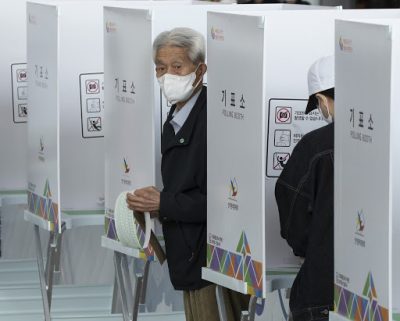Election Recount in South Korea: Supreme Court’s Second Silence
8 Months Late Already Until the Vote Recount. When Public Appraisal Begins?

All Global Research articles can be read in 51 languages by activating the “Translate Website” drop down menu on the top banner of our home page (Desktop version).
Visit and follow us on Instagram at @crg_globalresearch.
***
On June 28, a 22-hour recount was completed due to a legal procedure in an election invalidity lawsuit in YeonSu-Gu, Incheon, South Korea. It has been 14 months since the general elections ended on April 15, 2021. In South Korea, a total of 139 lawsuits have been filed in connection with the last April general elections, starting on April 17, 2020. Many Korean national assembly candidates and civic groups have consensus with the fact 2020 April general election was rigged. Solid evidence was submitted to the court one after another, unfortunately, the Supreme Court has delayed the date of hearing on such proceedings.
Article 225 of Korea’s ‘Public Official Election Act’ stipulates that election lawsuits should be promptly tried, and that the court should handle them within 180 days (six months) from the date when the lawsuit was filed. However, the Supreme Court justices have abandoned the execution of their duties because they did not hold a court hearing on their respective claims, let alone a recount, despite 126 pending cases in the Court. It’s been criticized.
Before re-count on June 28th ‘CCAN: Clean election Citizens’ Action Network’, a civic group monitoring the political election, claimed that four conditions (1) physical ballot checks, (2) QR code checks, (3) voting paper imaging files, and (4) voting paper print status checks, are required. Many media, who have not even appeared on the recount court, are paying attention to the Moon Jae-in administration and are reporting irresponsibly with titles such as “There was no pre-voting fraudulent” and “There was no pre-manipulation…”, but the reality is quite different from that.
Only two of the above conditions were verified incompletely on the 28th and 29th June, and QR codes were simply calculated without precision analysis. It is also unconvincing with common sense that the National Election Commission does not submit the original voting imaging file on the day of the recount.
A serious problem discovered by observers is the printing of ballots. The CCAN analyzed the print status of the recounting observers, including a printing expert, through a image of the ballot. Based on this, it is hard to say that the ballots taken at the recount on the June 28th were printed using the Epson TM-C3400 printer used in the pre-voting on April 10th-11th, 2020. In addition, the ballot paper printed by overlapping the proportional representation ballot on the advance ballot paper secured by the Supreme Court as evidence symbolically shows the fact that the ballot paper is forged. In South Korea, people vote as if they were stamping a ballot by hand, but civic groups claim that the photos taken at the recount booth look as if they were printed through a large printing machine at a printing house.
Many South Korean civic groups, such as “CCAN” on the interim results of the June 28 recount, claim as follows. First, Korea mass media should stop reporting predicting the outcome of the recount and focus now on the salient printing issue. Second, it is necessary to conduct an appraisal of the print status of the ballot papers, which appeared during the recount process on the 28th, causing a lot of suspicion. Third, in particular, the Supreme Court should disclose to the media the paper printed by overlapping the proportional representation ballot on the advance ballot secured by <Evidence No. 5> and undergo objective verification. Fourth, it is necessary to investigate the imaging file collation within a short time with a validated algorithm.
In conclusion, the Supreme Court has not issued a final ruling on the lawsuit. However, as the first recount has been delayed for as long as eight months, it is expected that a conclusion will not be made easily. If the reality of the rigged election is concealed and the credibility of the election collapses, South Korea could return to the authoritarian society before 1987. As there are no general elections in Red China, this could be the first step in the chinesization of the Korean Peninsula.
*
Note to readers: Please click the share buttons above or below. Follow us on Instagram, @crg_globalresearch. Forward this article to your email lists. Crosspost on your blog site, internet forums. etc.
Byoung Ho Kang is a Professor at Pai-Chai University.
Featured image is from Xinhua

